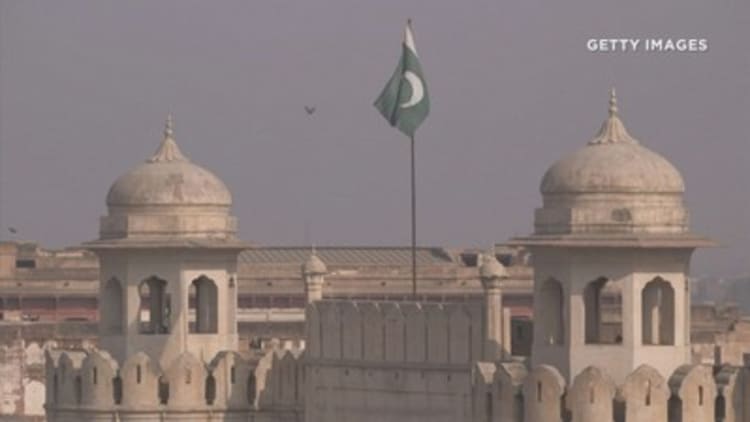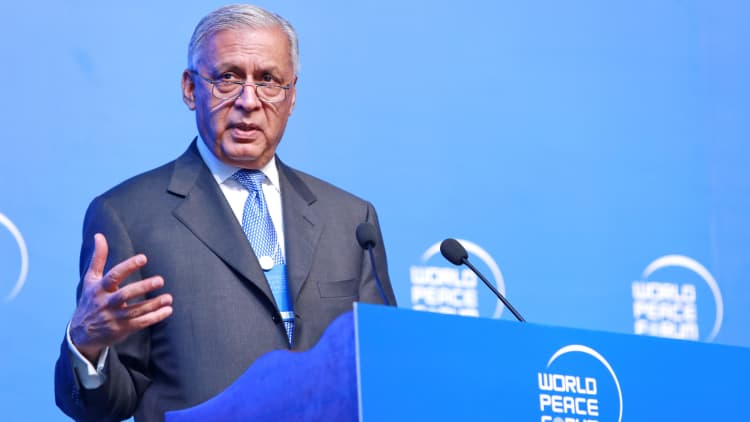
Pakistan must do more to combat homegrown terrorism or risk joining the Muslim-majority nations on President Donald Trump's travel ban, political risk consultancy Eurasia has warned.
"Pakistan's continuing loss of influence with the [U.S.] executive branch and Congress could result in some form of economic and travel sanctions," said analysts Sasha Riser-Kositsky and Shailesh Kumar in a Thursday note.
"A senior White House official already suggested that Pakistan could be included on a list of terrorism-wracked countries whose citizens are now temporarily banned from entering the U.S."
Some policy experts were surprised that the South Asian nation wasn't included on Trump's Jan. 27 executive order. The Islamic Republic of Pakistan has long been a hotbed for various militant groups and those motivated by sectarianism, anti-India sentiments, the Taliban, Al-Qaeda and the Islamic State, or ISIS, are among the most prolific.
Washington and Islamabad share a multi-faceted relationship in areas of security, energy and investment, with the U.S. being Pakistan's largest export destination. In a December phone call, Trump told Pakistan Prime Minister Nawaz Sharif that he was "willing to play any role" to help "fantastic' Pakistan."

But because the White House is committed to fighting Islamic terrorism, bilateral ties will worsen if Sharif doesn't reign in local radical cells, particularly the Haqqani network that's closely associated with the state intelligence agency, Riser-Kositsky and Kumar said.
If individuals related to Pakistan are blamed for another terrorist attack on American soil, Trump would likely to punish Islamabad, they continued.
"Indeed, it was after the late 2015 San Bernadino shootings, perpetrated by a couple with deep links to Pakistan, that then candidate Trump announced his support for a ban on Muslims entering the U.S."
Almost half, or $400 million of the $900 million of the U.S. Coalition Support Fund aid to Pakistan budgeted for 2017 is conditioned on Islamabad seriously combating the Haqqani network and a loss of these funds would certainly hurt Pakistan's widening current account and fiscal deficits, the analysts flagged.
The capture of Hafiz Saeed, the accused mastermind of the 2008 Mumbai attacks, is a recent example of poor governance. This week, Islamabad placed Saeed under house arrest but the government won't seriously pursue him given the popularity of his Islamic charity, the Jamaat-ud-Dawa, Eurasia warned.

